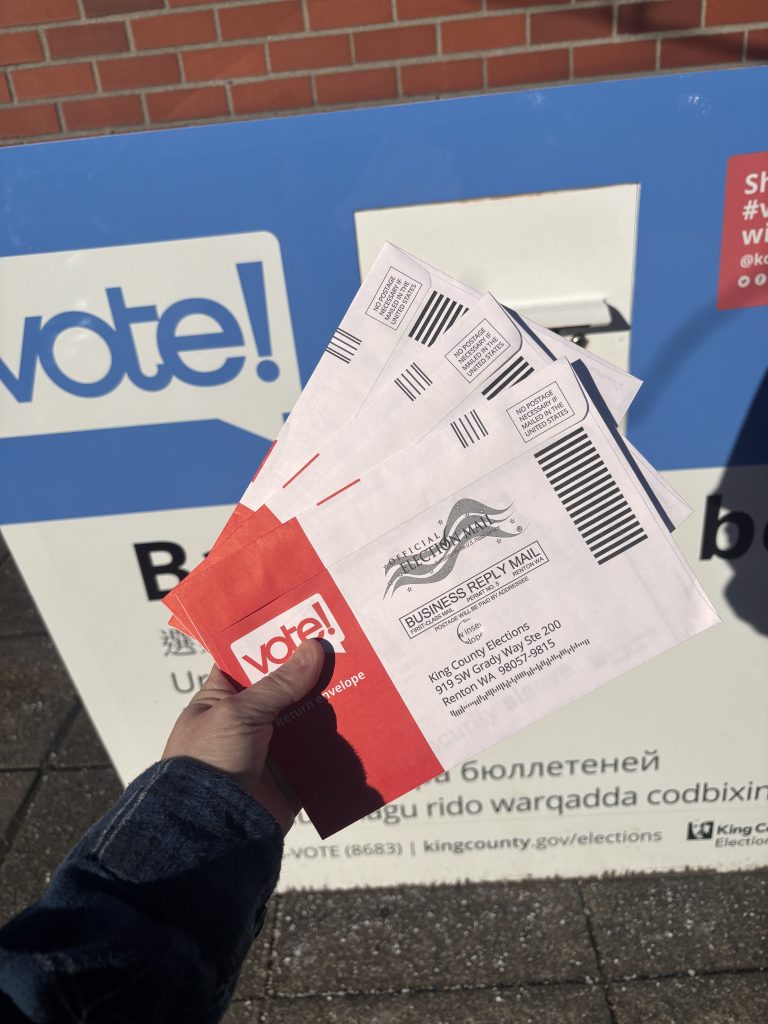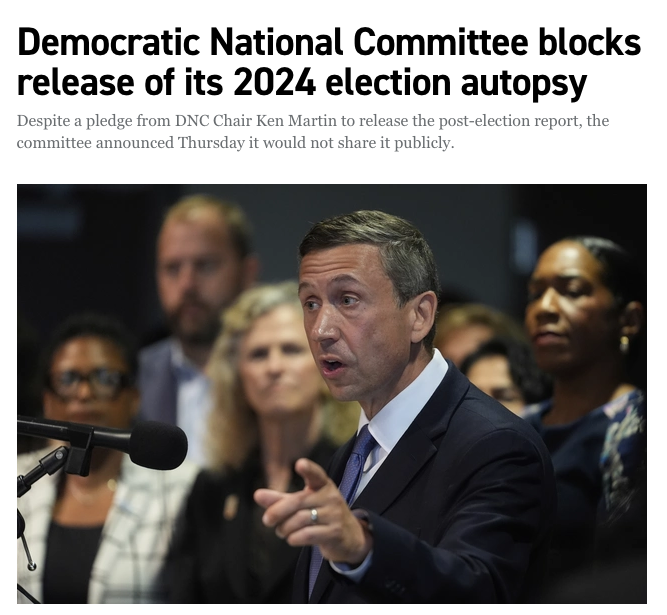Vote!
Republicans gerrymander, purge voter rolls in blue places, create ID obstacles and work for low turnout. Propaganda machines churn out claims you’re a chump if you vote (protest, call Congress, boycott…)
What does that tell you? Your vote matters! Our elections aren’t particularly fair, but they aren’t shams either. Overwhelm them by voting EVERY race on EVERY ballot.

How to do it:
Make sure your ballot arrives by dropping absentee or mail-in ballots in an official drop-box, not the USPS. After years of intentional starvation, USPS no longer guarantees a same-day postmark. (This affects bills and taxes too!) If you must mail, do so at least a week before the deadline.
Stay in line. In most places, anyone in line when polling closes are permitted to vote. If it’s getting close, go pee now. If you step out of line you may not be allowed back in. If you can afford it, order pizza for the line to help others stay resolved (note: in some places laws have been passed against sending pizzas to the polls, but we are unaware of any law that prevents you from ordering pizzas for yourself and sharing. )
Vote every election. There is an election every year in November and most years a series of primaries or special elections at seemingly random dates. Presidential and midterm elections have relatively high turnout (for the U.S.) but many of these smaller elections are decided by small margins of only the most dedicated voters. They can include important issues — Mike Johnson has shut down the House because a special election in Arizona switched a seat to Democrats, and will mean a vote to advance legislation to release the Epstein files.
Vote every contested race. It takes a little time to research local races, but by now it’s clear how school boards, judges and sheriffs directly affect policy. The Tea Party leveraged these overlooked political entry points decades ago. We have catch-up work to do. To speed your process, we provide some tips to winnow the herd below.
How to research local races:
The process of identifying reliable sources for voting recommendations begins well before elections. Seek out a local newspaper, blog, or social media feed that covers politics and tends to align with your beliefs. In most places, the real selection process happens in the primaries, when ballots can be long with many options in each race. We strongly recommend voting every primary, and offer these tips to keep it manageable:
- Skip uncontested races (unless you know there’s a write-in.)
- Weed out frivolous candidates:
- election pamphlet wasn’t completed (e.g. no statement)
- serious grammar errors, a hotmail address, or zero relevant experience suggest the candidate isn’t taking the process (or position) seriously
- pamphlet statement doesn’t reflect the position they seek, or is exceedingly vague. A school board member should tell you what they want to do for the school.
- Check the candidate’s web site
- is it reasonably professional? Does it promote specific policies?
- look for dog-whistles/coded speech
- check the list of endorsements for red flags
- If they list a religious home, check its web site. If it takes an open political position, the candidate’s inclusion of that affiliation is a dog-whistle for like-minded folks.
This usually gets us down to at most 2-3 serious candidates. Proceed as for any election: check your trusted local sources or text a friend who follows politics like its the World Series. Here are a few starting points:
- Look for local news about the candidate. Smaller races are often covered in smaller papers.
- The League of Women Voters has local chapters nearly everywhere. Their recommendations tend to be progressive, with primary emphasis on reproductive rights and other “feminist” topics
- The League of Minority Voters is a good resource for practical, progressive guidance. They do not maintain chapters in every state.
- The Progressive Voters Guide can help identify hidden regressives in blue states. (e.g. Federalist Society vetted judges.) They do not have guides in every area, and will not align with every voter.
What if I’m turned away?
We recommend you check voter registration before deadlines. If it’s too late for that, some states allow same-day registration, but you may need to go to your elections office. If your state does not, we recommend you ask for a provisional ballot, then seek a local voter rights group for help.
If an absentee ballot goes astray, you’ll also need to contact your elections office for a replacement. Don’t give up hope—I once cast a replacement ballot from an ICU across the nation, thanks to a friend who worked in politics telling me how to print one in place of the one that didn’t come in time.




